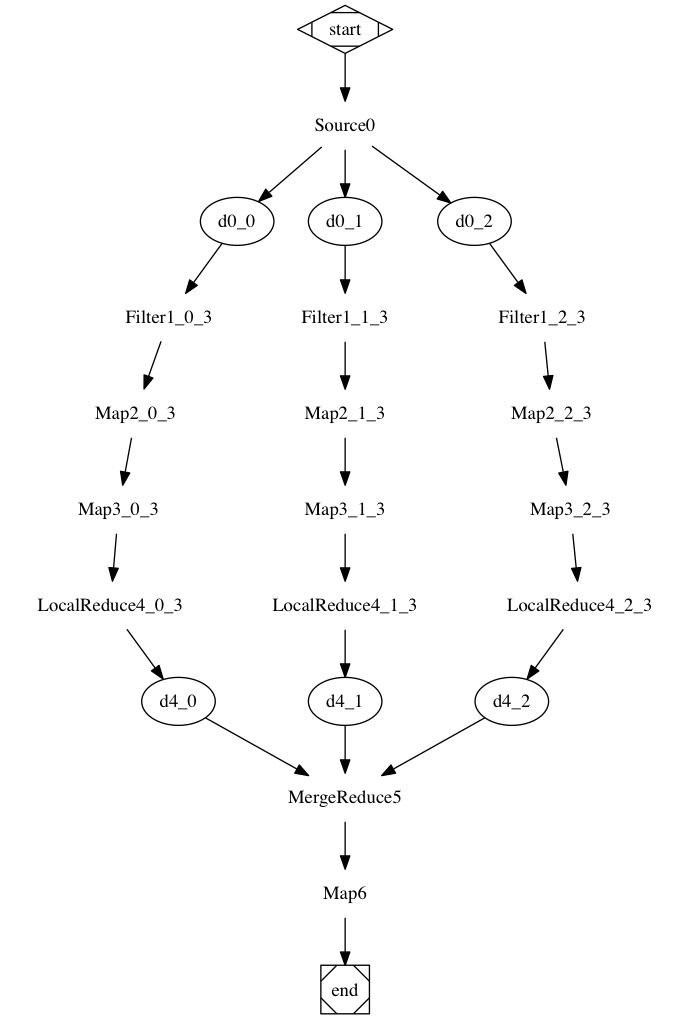glow alternatives and similar packages
Based on the "Distributed Systems" category.
Alternatively, view glow alternatives based on common mentions on social networks and blogs.
-
Nomad
Nomad is an easy-to-use, flexible, and performant workload orchestrator that can deploy a mix of microservice, batch, containerized, and non-containerized applications. Nomad is easy to operate and scale and has native Consul and Vault integrations. -
go-zero
DISCONTINUED. go-zero is a web and rpc framework written in Go. It's born to ensure the stability of the busy sites with resilient design. Builtin goctl greatly improves the development productivity. [Moved to: https://github.com/zeromicro/go-zero] -
rpcx
Best microservices framework in Go, like alibaba Dubbo, but with more features, Scale easily. Try it. Test it. If you feel it's better, use it! 𝐉𝐚𝐯𝐚有𝐝𝐮𝐛𝐛𝐨, 𝐆𝐨𝐥𝐚𝐧𝐠有𝐫𝐩𝐜𝐱! build for cloud! -
Encore
Encore is the Backend Development Platform purpose-built to help you create event-driven and distributed systems. -
gleam
Fast, efficient, and scalable distributed map/reduce system, DAG execution, in memory or on disk, written in pure Go, runs standalone or distributedly. -
Olric
Distributed in-memory object store. It can be used as an embedded Go library and a language-independent service. -
Dragonfly
Dragonfly is an open source P2P-based file distribution and image acceleration system. It is hosted by the Cloud Native Computing Foundation (CNCF) as an Incubating Level Project. -
go-doudou
go-doudou(doudou pronounce /dəudəu/)is OpenAPI 3.0 (for REST) spec and Protobuf v3 (for grpc) based lightweight microservice framework. It supports monolith service application as well. -
resgate
A Realtime API Gateway used with NATS to build REST, real time, and RPC APIs, where all your clients are synchronized seamlessly. -
go-sundheit
A library built to provide support for defining service health for golang services. It allows you to register async health checks for your dependencies and the service itself, provides a health endpoint that exposes their status, and health metrics. -
Maestro
Take control of your data, connect with anything, and expose it anywhere through protocols such as HTTP, GraphQL, and gRPC. -
celeriac
Golang client library for adding support for interacting and monitoring Celery workers, tasks and events. -
drmaa
Compute cluster (HPC) job submission library for Go (#golang) based on the open DRMAA standard.
InfluxDB - Power Real-Time Data Analytics at Scale

Do you think we are missing an alternative of glow or a related project?
Popular Comparisons
README
glow
Purpose
Glow is providing a library to easily compute in parallel threads or distributed to clusters of machines. This is written in pure Go.
I am also working on another pure-Go system, https://github.com/chrislusf/gleam , which is more flexible and more performant.
Installation
$ go get github.com/chrislusf/glow
$ go get github.com/chrislusf/glow/flow
One minute tutorial
Simple Start
Here is a simple full example:
package main
import (
"flag"
"strings"
"github.com/chrislusf/glow/flow"
)
func main() {
flag.Parse()
flow.New().TextFile(
"/etc/passwd", 3,
).Filter(func(line string) bool {
return !strings.HasPrefix(line, "#")
}).Map(func(line string, ch chan string) {
for _, token := range strings.Split(line, ":") {
ch <- token
}
}).Map(func(key string) int {
return 1
}).Reduce(func(x int, y int) int {
return x + y
}).Map(func(x int) {
println("count:", x)
}).Run()
}
Try it.
$ ./word_count
It will run the input text file, '/etc/passwd', in 3 go routines, filter/map/map, and then reduced to one number in one goroutine (not exactly one goroutine, but let's skip the details for now.) and print it out.
This is useful already, saving lots of idiomatic but repetitive code on channels, sync wait, etc, to fully utilize more CPU cores.
However, there is one more thing! It can run across a Glow cluster, which can be run multiple servers/racks/data centers!
Scale it out
To setup the Glow cluster, we do not need experts on Zookeeper/HDFS/Mesos/YARN etc. Just build or download one binary file.
Setup the cluster
# Fetch and install via go, or just download it from somewhere.
$ go get github.com/chrislusf/glow
# Run a script from the root directory of the repo to start a test cluster.
$ etc/start_local_glow_cluster.sh
Glow Master and Glow Agent run very efficiently. They take about 6.5MB and 5.5MB memory respectively in my environments. I would recommend set up agents on any server you can find. You can tap into the computing power whenever you need to.
Start the driver program
To leap from one computer to clusters of computers, add this line to the import list:
_ "github.com/chrislusf/glow/driver"
And put this line as the first statement in the main() function:
flag.Parse()
This will "steroidize" the code to run in cluster mode!
$ ./word_count -glow -glow.leader="localhost:8930"
The word_count program will become a driver program, dividing the execution into a directed acyclic graph(DAG), and send tasks to agents.
Visualize the flow
To understand how each executor works, you can visualize the flow by generating a dot file of the flow, and render it to png file via "dot" command provided from graphviz.
$ ./word_count -glow -glow.flow.plot > x.dot
$ dot -Tpng -otestSelfJoin.png x.dot

Read More
- Wiki page: https://github.com/chrislusf/glow/wiki
- Mailing list: https://groups.google.com/forum/#!forum/glow-user-discussion
- Examples: https://github.com/chrislusf/glow/tree/master/examples/
Docker container
Docker is not required. But if you like docker, here are instructions.
# Cross compile artefact for docker
$ GOOS=linux GOARCH=amd64 CGO_ENABLED=0 go build .
# build container
$ docker build -t glow .
See examples/ directory for docker-compose setups.
Contribution
Start using it! And report or fix any issue you have seen, add any feature you want.
Fork it, code it, and send pull requests. Better first discuss about the feature you want on the mailing list. https://groups.google.com/forum/#!forum/glow-user-discussion
License
*Note that all licence references and agreements mentioned in the glow README section above
are relevant to that project's source code only.

